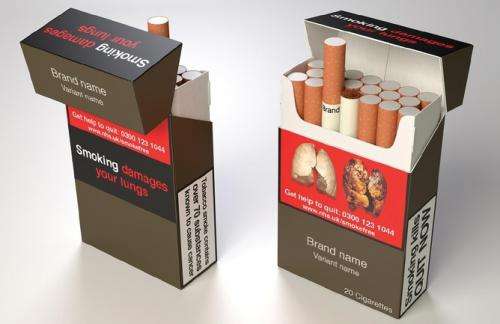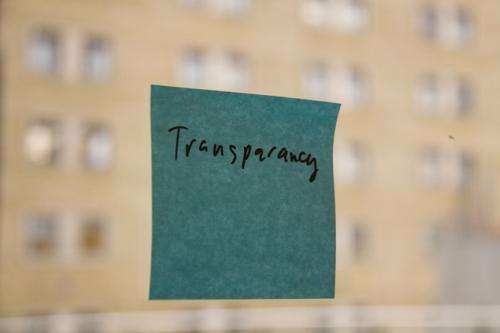Is the government stalling on plain cigarette packaging?

We are still waiting to hear whether the UK government will rule in that all tobacco products should be placed in standardised packaging.
Jane Ellison, the under secretary of state for public health, has the power to introduce standardised packaging under Section 94 of the Children and Families Act 2014. Yet, despite two public consultations, a government-commissioned review of the evidence by Sir Cyril Chantler, and a vote in the Commons, where only 24 MPs voted against introducing the policy, the future for the branding of tobacco packs remains unclear.
In accordance with European Union rules, the government notified Europe of potential plans to introduce standardised packaging and it has until March 2 2015 to consider responses from four member states (Bulgaria, the Czech Republic, Portugal and Romania). An announcement must be made shortly afterwards if the policy has any chance of being passed before next year's general election. Sarah Wollaston MP, chair of the Commons health select committee expressed concerns that "unless the government makes a final decision soon, time will run out for a debate and vote before the election".
A clear case for standardisation
Studies evaluating standardised packaging in Australia, the only country to have introduced it so far, have found the policy's preliminary objectives have been met. There was a 78% increase in the number of calls made to "Quitline" and a significant reduction in the display of cigarette packets in public places. Just a year after the policy was introduced, the prevalence of daily smoking in those aged 14 and over also reduced from 15.1% in 2010 to 12.8%. It's clear that the policy has proved to be a successful part of the country's multi-faceted and comprehensive tobacco control strategy, which also includes regular hefty tobacco tax increases.
Will it happen?
In his March review of the research evidence (including Australian evaluation studies), Chantler concluded that he was "persuaded that branded packaging plays an important role in encouraging young people to smoke."
But although Ellison stated in November that "health ministers are on the record as saying that we are minded to move forward on this, and we want to make progress," she is still being asked about the potential consequences of the policy on the illicit tobacco trade – a concern heavily promoted by the tobacco industry.

Most recently this question was posed by Ian Paisley MP, who has a Japan Tobacco International factory in his North Antrim constituency, until it closes in 2016.
Although Ellison said that Chantler's review questioned the reliability of this argument, she conceded that the matter required further investigation before a final decision is reached.
The illicit trade is a red herring
Tobacco companies have a history of opposing tobacco control measures on the basis that they will increase illicit trade – standardised packaging is not unique in this respect.
Leaked documents from tobacco company Philip Morris International revealed that the illicit trade argument was fundamental to the industry's strategy to ensure that the policy was not adopted in the UK and that "broad third-party media engagement" and "high profile opinion pieces" would be used to raise awareness of this argument among "decision makers and the general public".
In recent years official UK figures have suggested a decrease in illicit trade. In addition, tobacco companies have been convicted of complicity in the illicit trade (just last month, British American Tobacco was fined £650,000 by HM Revenue and Customs for over-supplying cigarettes to Belgium amid fears that these cigarettes were being smuggled back into the UK) and independent peer-reviewed evidence shows that illicit trade did not increase in Australia after standardised packaging was introduced.
Yet tobacco companies and their associates continue to influence the rhetoric in the UK. They have positioned the illicit trade as an already "booming" market vulnerable to further increases as a result of standardised packaging. Industry commissioned reports have also insisted that illicit levels have increased in Australia with companies presenting themselves to government as indispensable experts in illicit trade.

Use of third parties
A paper recently published in Tobacco Control revealed that tobacco companies used the third-party technique extensively in their submissions to a 2012 government consultation. The paper shows that in the absence of any independent, peer-reviewed studies that supported their argument about illicit tobacco trade or detrimental economic impacts on retailers, manufacturers and the exchequer, tobacco companies relied on seven reports that they had commissioned and the opinions of third parties with whom they held financial links – these include tobacco company front groups, those commissioned to produce reports, business or retail organisations with tobacco company members, trade unions with tobacco company employees, and 51 MPs opposed to standardised packaging, seven of whom have taken tobacco industry hospitality.
Although nearly half the 74 pieces of evidence cited by tobacco companies were financially connected to them, in 91% of cases no connection was disclosed.
This lack of transparency in relation to evidence is disingenuous, poses a conflict of interest, and raises some serious questions. By citing evidence from third-parties without disclosing the financial links to the industry, tobacco companies have not only created the impression of a large network of opposition but also of an illusionary body of evidence.
Our Tobacco Control Research Group at the University of Bath has been monitoring tobacco companies' responses to proposals on standardised packaging. We publish our findings in peer-reviewed journals as well as on our website www.TobaccoTactics.org. Our most recent research adds to a growing body of research literature that illustrates how the big four tobacco companies operating in the UK have manipulated press coverage regarding the illicit tobacco trade, misrepresented existing evidence on standardised packaging policy and used poor quality evidence to argue that putting tobacco in unbranded packets will not work.
Companies and public consultations
Although it is yet to be seen whether any of this industry activity will be successful in influencing the government to kick standardised packaging into the long grass, the results of these studies call into question the sensitivities of having these stakeholders in the consultation process, as required within the government's better regulation framework. We suggest that if tobacco companies are allowed to continue to submit evidence to public consultations, it should be compulsory for them, in line with Article 5.3 of the World Health Organisation's Framework Convention on Tobacco Control, to exercise transparency and disclose any potential conflict of interest – not only of their own position but also of the evidence which they cite to support their arguments.
This story is published courtesy of The Conversation (under Creative Commons-Attribution/No derivatives).
![]()



















